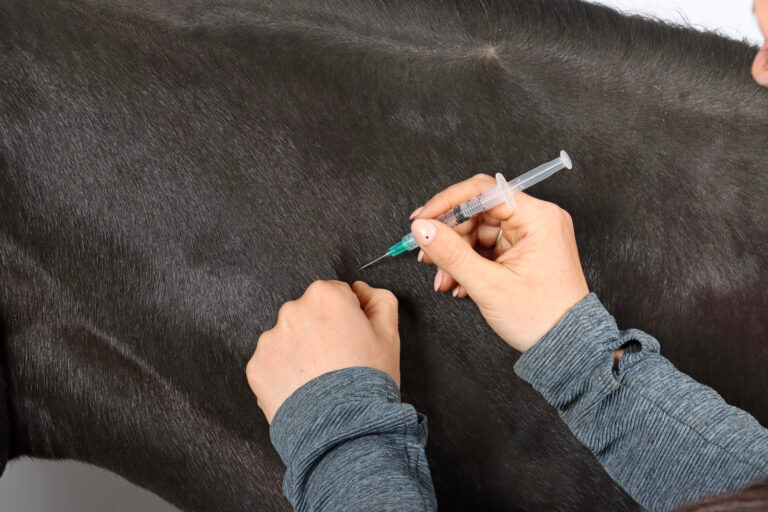
Approximately 60% of pleasure horses and up to 80% of racehorses are afflicted with equine asthma. This is because environmental conditions—such as lifestyle, forage quality, stabling and exercise surfaces—strongly influence airway health and disease. Michelle Coleman, DVM, PhD, DACVIM, of the University of Georgia’s School of Veterinary Medicine, discussed her research on asthma and translational medicine between horse and human at the 2022 Platinum Performance Summit.
Historically, mice have been used to study asthmatic disease in humans (as many as 8.3% of Americans are affected by asthma, resulting in nearly 500 thousand hospitalizations and 3 million emergency visits per year). However, it turns out that the mouse is a poor model for evaluating human disease since asthma is not naturally occurring in mice. Furthermore, mouse anatomy and response changes are not comparable to humans. Spontaneous asthma that develops in humans in natural settings also occurs in cats, monkeys and horses, with horses having the closest approximation to human lung responses.
Equine and human lungs have a similar ratio of mass to weight. Airway smooth muscle involvement and hyperresponsiveness is also similar between horses and humans. Glands and arteries within the respiratory tract are comparable. Inflammatory cell type and cytology are similar, as are clinical signs—coughing, tightness of the chest, wheezing and shortness of breath. So, horses make a perfect model to study asthma pathophysiology with application to both horses and humans.
Obesity as a Risk Factor for Equine Asthma
Coleman noted that when horses with asthma were brought in for veterinary evaluation, many of them were obese. In her studies, she has identified a gut-lung axis as an integrated system with bi-directional cross-talk between the lungs and intestines. In obese horses, the microbiome is different than in a non-obese horse, and the same has been found in humans. Obesity is known to be an inflammatory disease leading to gut inflammation and inflammation of the microbiome. Translocation of bacteria and bacterial metabolites like lipopolysaccharide (LPS) through a “leaky gut” can elicit inflammatory changes in the respiratory tract.
Obesity increases the risk of developing equine asthma, and even if a horse loses weight, respiratory inflammation remains. Coleman’s lab is investigating the inflammatory changes that occur between the intestines and lungs and how obesity impacts those changes.


![[Aggregator] Downloaded image for imported item #18383](https://s3.amazonaws.com/wp-s3-equimanagement.com/wp-content/uploads/2025/09/30141253/EDCC-Unbranded-29-scaled-1-768x512.jpeg)

